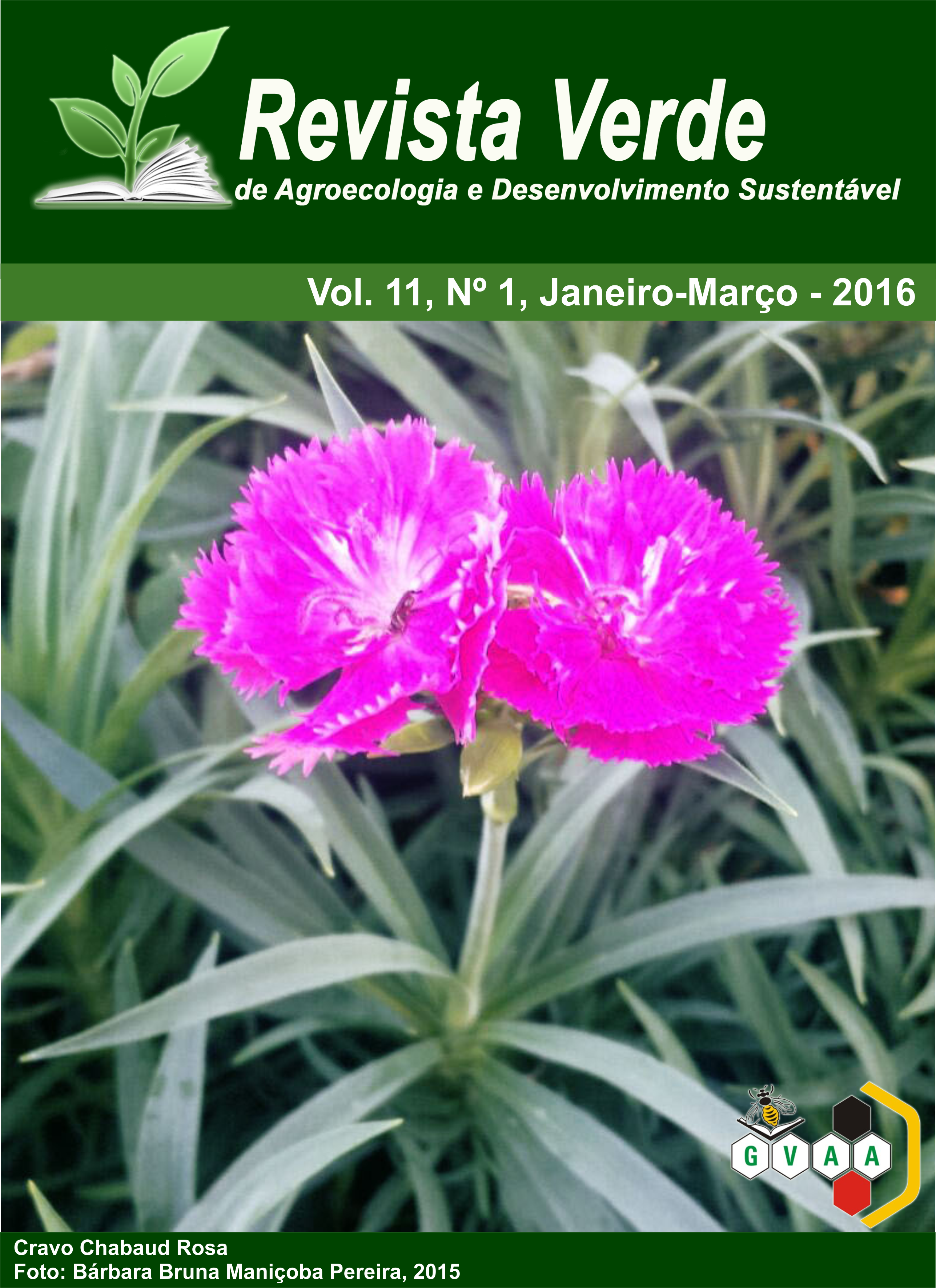Acúmulo, deposição e decomposição de serrapilheira sob a dinâmica vegetacional da Caatinga em Unidade de Conservação
DOI:
https://doi.org/10.18378/rvads.v11i1.4523Palavras-chave:
Aporte de serrapilheira. Ciclagem de nutrientes. Miscelânea.Resumo
A ciclagem de nutrientes é essencial para a manutenção da produtividade dos ecossistemas florestais, principalmente sobre solos de baixa fertilidade e fortemente intemperizados. Apesar da existência de trabalhos de acúmulo e deposição de serrapilheira da vegetação da Caatinga, ainda falta muito para o conhecimento da dinâmica desse bioma. O presente trabalho teve por objetivo, avaliar o acúmulo, deposição e decomposição de serrapilheira, a fim de obter informações sobre a dinâmica das espécies vegetais de uma Reserva Particular do Patrimônio Natural no bioma Caatinga, no Estado da Paraíba, para propiciar futuros estudos no tocante a ciclagem de nutrientes e, avaliar a interferência da precipitação pluviométrica na sazonalidade destes eventos. Para se obter a produção de serrapilheira 20 coletores de 1,0 m x 1,0 m, com fundo da tela de náilon. Coletada mensalmente, a serrapilheira foi separada nas frações folhas, galhos, material reprodutivo e miscelânea, sendo as frações secas em estufa e posteriormente pesada. Para avaliar a quantificação do estoque de serrapilheira acumulada foi utilizada moldura metálica com dimensões de 0,5 m x 0,5 m, lançada aleatoriamente, sendo coletada mensalmente, levada ao laboratório para secagem em estufa e pesado. A deposição de serrapilheira na fração folha no ano de 2011 estimou-se em 2.079,61 kg ha-1, representando 77,23% do total estimado para o período experimental. Conclui-se que, a produção de serrapilheira obedeceu a seguinte ordem: folhas > galhos + cascas > material reprodutivo > miscelânea. A serrapilheira acumulada no piso florestal na área de estudo pode ser decomposta em quase sua totalidade em aproximadamente dois anos.
Accumulation, deposition and decomposition of litter in a dynamic Caatinga vegetation in a Conservation Unit
Abstract: Nutrient cycling is essential for maintaining the productivity of forest ecosystems, especially on soils of low fertility and strongly weathered. Despite the studies of accumulation and deposition of litter in the Caatinga vegetation, there is still much to our understanding of the dynamics of this biome. This study aimed to evaluate the accumulation, deposition and decomposition of litter in order to obtain information about the dynamics of plant species in a Private Reserve of Natural Heritage in Caatinga biome in the state of Paraíba, to provide future studies regarding nutrient cycling, to facilitate future studies regarding nutrient cycling, and evaluate the role of rainfall seasonality in these events. To obtain the litterfall production, we used 20 collectors of 1.0m x 1.0 m, with nylon fabric background. The collection was done monthly, the litter was separated into leaves, twigs, reproductive material and miscellaneous and were dried in an oven and then weighed. To evaluate the quantification of the stock of accumulated litter, we used a metal frame with dimensions of 0.5m x 0.5m, thrown randomly being and being collected monthly, then taken to the laboratory oven to dry and to be weighed. The deposition fraction of leaf litter in the year 2011 was estimated at 2079.61 kg ha-1, representing 77.23% of the total estimate for the experimental period. We conclude that the litterfall followed the order: leaves > bark + branches > reproductive material > miscellany. The litter accumulated on the forest floor in the study area can be decomposed almost completely in about two years.















